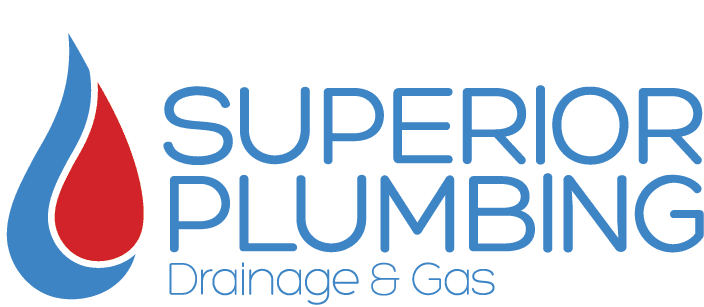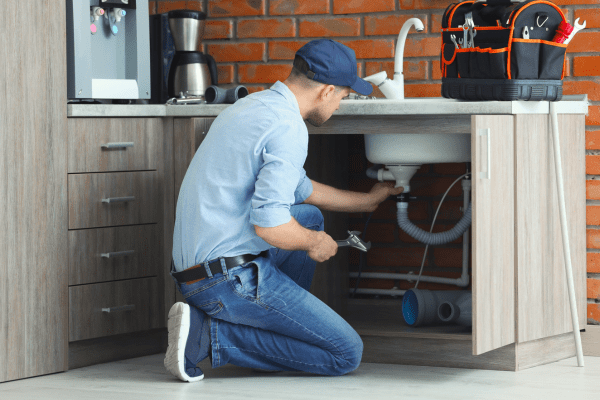Perth’s diverse climate means that seasonal changes can have significant effects on your plumbing system. From the scorching heat of summer to the chillier winter nights, each season presents unique challenges that homeowners should be aware of.
Superior Plumbing will help you understand these impacts so you can prevent costly repairs and ensure your system operates efficiently year-round.
Plumbing: Consistent Maintenance in Different Climates
Regular maintenance and timely repairs are key to avoiding the inconvenience and expense of major plumbing issues. As the climate continues to evolve, staying informed and proactive about your home’s plumbing needs is more important than ever. Let’s break down the challenges you can face in each season.
Summer: Heat and Drought Conditions
Regions like Western Australia are known for their intense summer heat. During this time, high temperatures and prolonged dry spells can strain your plumbing system in several ways:
- Water Pressure Issues: The increased demand for water during summer can lead to low water pressure, especially if there are water restrictions in place. This can affect the performance of showers, sprinklers, and other water-dependent appliances.
- Pipe Expansion and Cracking: Prolonged exposure to extreme heat can cause metal and plastic pipes to expand. Over time, this expansion and subsequent contraction when temperatures drop at night can lead to cracks, particularly in older or weaker pipes.
- Ground Shifting: In drought-prone areas, the lack of moisture can cause the soil to contract, potentially shifting the pipes underground. This movement can lead to misaligned or broken pipes, causing leaks or blockages.
Winter: Cold and Freezing Temperatures
While much of Australia enjoys mild winters, certain areas can experience cold snaps that impact plumbing:
- Frozen Pipes: In colder regions, water inside pipes can freeze, especially in outdoor pipes or those located in unheated areas like basements or attics. Frozen water expands, which can cause pipes to burst, leading to severe water damage once the ice thaws.
- Water Heater Stress: During winter, water heaters work overtime to supply hot water, putting extra strain on the system. Older water heaters may struggle to keep up, leading to breakdowns or inefficiency.
- Increased Blockages: Cold weather can cause fats, oils, and grease that are poured down the drain to solidify quicker, leading to blockages in your pipes. These blockages can be particularly troublesome in kitchens where cooking increases during the colder months.
Spring and Autumn: Transitional Periods
The transitional seasons of spring and autumn bring their own set of challenges. These periods often involve fluctuating temperatures and increased rainfall, both of which can impact your plumbing:
- Gutter and Drain Blockages: As trees shed leaves in autumn and plants bloom in spring, there’s a higher likelihood of debris clogging gutters and outdoor drains. Blocked gutters can lead to water overflow, damaging your home’s foundation, while blocked drains can cause localised flooding.
- Pipe Stress from Temperature Fluctuations: The frequent temperature changes during these seasons can cause pipes to expand and contract more frequently, leading to stress on the plumbing system. This is particularly relevant in areas where temperatures can vary widely between day and night.
- Increased Water Usage: Spring often sees an increase in outdoor water usage as gardens are planted and lawns are revived. This can put extra strain on your plumbing system, especially if it’s not in top condition after the colder months.
Preventative Measures
Understanding the impact of these seasonal changes is the first step in protecting your plumbing system. Here are some preventative measures you can take:
- Insulate Pipes: In colder regions, insulate exposed pipes to prevent freezing. This is particularly important for outdoor taps and pipes in unheated areas.
- Regular Inspections: Have your plumbing system inspected regularly, especially before the start of extreme seasons like summer and winter. This can help identify potential issues like small cracks or leaks before they become major problems.
- Clear Gutters and Drains: Regularly clean out gutters and drains to prevent blockages. This is particularly important after heavy rain or during periods when trees are shedding leaves.
- Monitor Water Pressure: Keep an eye on your water pressure, especially during peak usage times in summer. Low pressure can indicate a problem with your plumbing system or the municipal water supply.
- Service Your Water Heater: Ensure your water heater is serviced regularly, especially before winter. This will help maintain its efficiency and prolong its lifespan.
When to Call a Professional
While homeowners can handle routine maintenance and minor repairs, some plumbing issues require the expertise of a professional plumber. Recognising these situations is crucial to preventing minor problems from escalating into costly disasters.
- Persistent Low Water Pressure: Consistently low water pressure can indicate serious issues like pipe leaks, sediment buildup, or problems with the municipal supply. A professional plumber can diagnose the cause, conduct pressure tests, and address any clogs or leaks to restore proper water flow.
- Frequent Blockages: Regular blockages in sinks, toilets, or drains may signal deeper issues such as tree root intrusion or severe debris buildup. Professional plumbers use specialised tools like drain cameras and high-pressure jets to identify and clear persistent blockages without causing further damage.
- Leaks and Water Damage: Minor leaks can lead to significant water damage, mould growth, and structural issues. If you notice visible leaks or damp areas, it’s essential to call a plumber. They can locate and fix the source of the leak and assess any resulting damage to prevent further problems.
- Unusual Noises or Odours: Sounds like banging, gurgling, or hissing from pipes or foul odours from drains often indicate underlying issues. These could range from water hammer to sewer line problems. A professional plumber can diagnose and resolve these issues effectively.
- Old or Corroded Pipes: In older homes, pipes made of outdated materials can corrode and cause leaks or health hazards. Signs of corrosion, such as discoloured water or rust, necessitate a professional evaluation. Plumbers can recommend and install modern materials like copper or PEX to replace old pipes.
- Emergency Situations: Emergencies like burst pipes, sewage backups, or severe flooding demand immediate professional intervention. These situations can cause extensive damage and health risks, and professional plumbers are equipped to handle emergencies swiftly and effectively.
Superior Plumbing All Year Round
Calling in a professional for your seasonal plumbing needs ensures you receive expert care tailored to your climate’s unique challenges.
With over 20 years of experience, Superior Plumbing and Gas offer reliable, high-quality service that keeps your home safe and your plumbing efficient year-round.
Our skilled team is ready to deliver professional, timely, and cost-effective solutions that protect your home, whatever the changing seasons throw at you.
Get in touch today.


